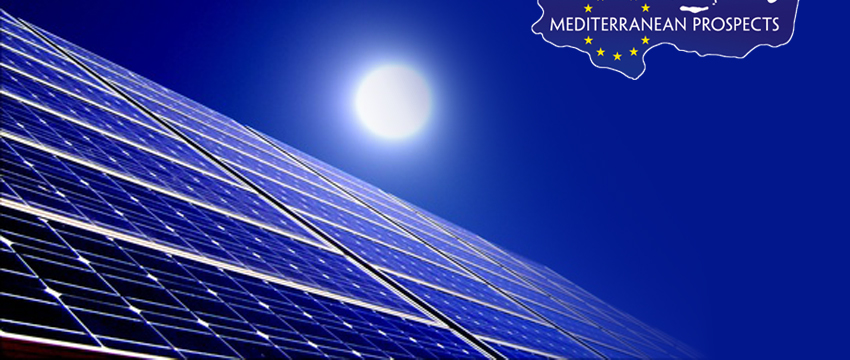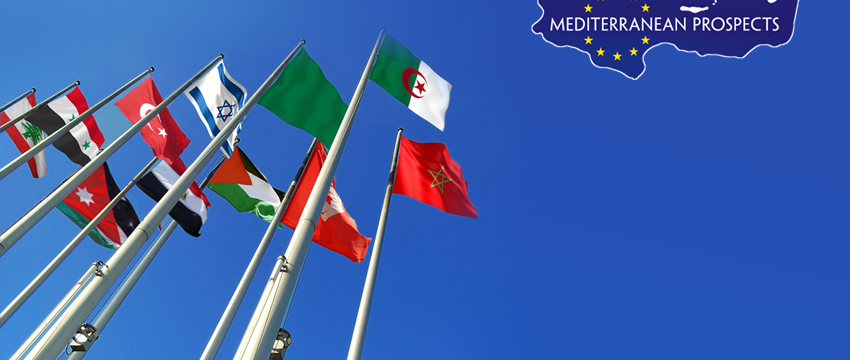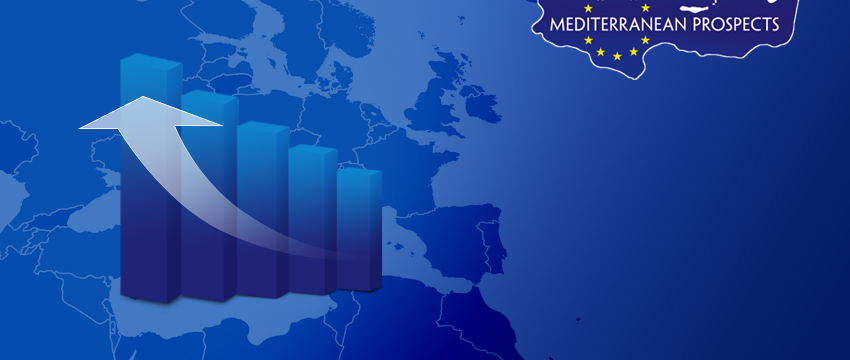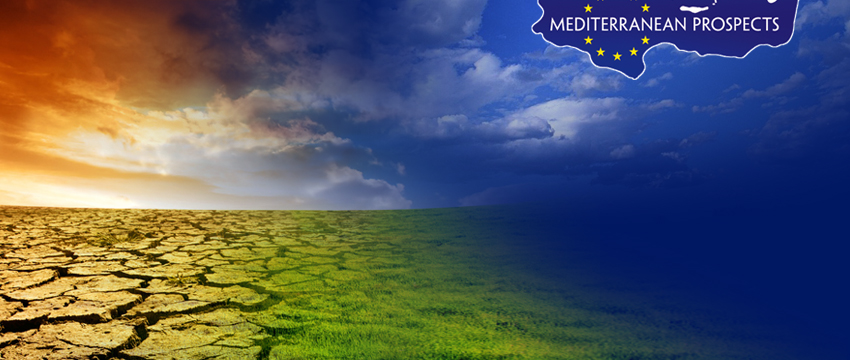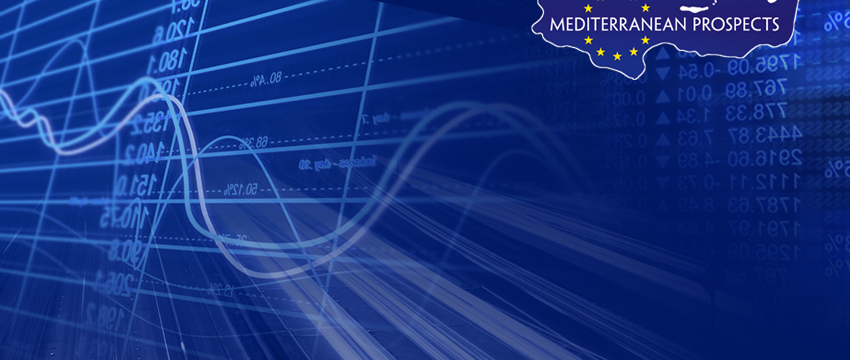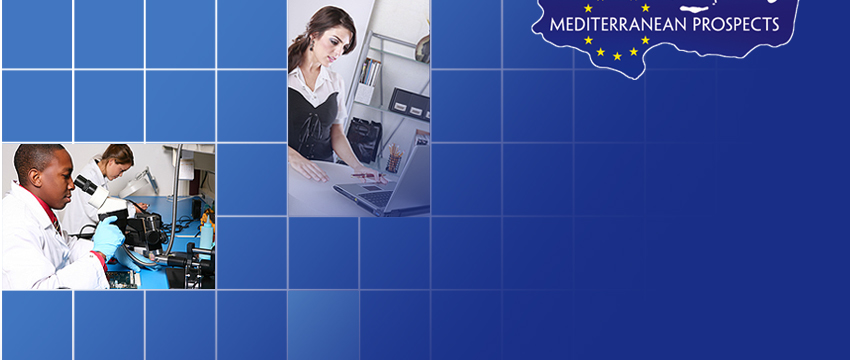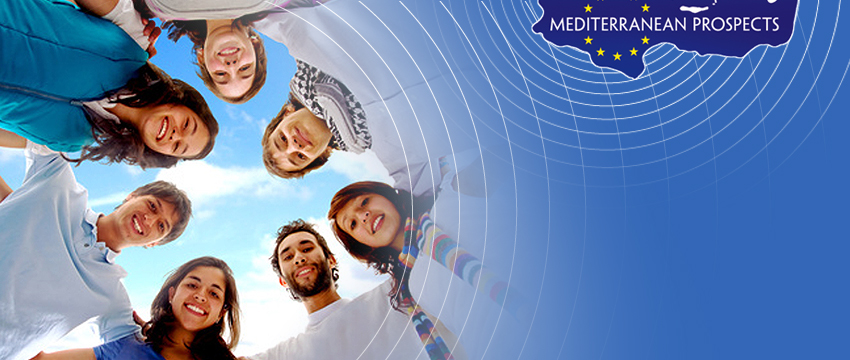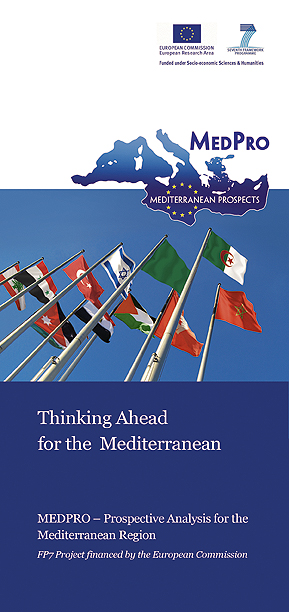الروابط
A. Euro-Mediterranean research institutes
1- Euromesco
EuroMeSCo -the Euro-Mediterranean Study Commission- is the main network of research centres on politics and security in the Mediterranean. Set in 1996 with the aim to foster research, information and social relations among its members while acting as a confidence building measure in the framework of the Barcelona Process, the EuroMeSCo network gathers 58 institutes originating from 35 countries members of the Union for the Mediterranean as well as 28 observer institutes. To foster influential analysis on Euro-Mediterranean politics and policies, EuroMeSCo maintains a wide range of publications aimed at promoting and disseminating the research activities of its members; it develops analytical and policy oriented research projects and organizes conferences, seminars as well as workshops with a view to contribute to the debate on politics and
security in the Mediterranean.
2- Femise
After 8 years of operation, the FEMISE Association -Forum Euro-Méditerranéen des Instituts de Sciences Economiques- was established in June 2005 as a non-profit organization under French law. FEMISE is a network gathering more than 94 economic research institutes representing the countries partner countries of the Barcelona Process. The network is supported by the European Commission within the frameworks of MEDA (until 2005) and the ENPI (European Neighborhood and Partnership Instrument). In 2005 FEMISE initiated new projects with international institutions such as the European Investment Bank and the World Bank among others. The FEMISE network is jointly coordinated by the Institut de la Méditerranée, (IM, France) and the Economic Research Forum (ERF, Egypt). FEMISE’s goals are to conduct policy research and make recommendations on Euro-Mediterranean relations; as well as to publish and disseminate as broadly as possible this research for the benefit of public, private, national and multilateral institutions.
3- Blue Plan
Over the past 30 years, 21 states bordering the Mediterranean Sea and the European Community have developed a mechanism for regional cooperation within the framework of the United Nations Environment Programme’s / Mediterranean Action Plan (UNEP/MAP) to which the Blue Plan is part. Its main tasks are to produce information and knowledge in order to alert decision-takers and other stakeholders to environmental risks and sustainable development issues in the Mediterranean; as well as to shape future scenarios to guide decision-taking processes.
4- CIHEAM
Founded in 1962 at the joint initiative of the OECD and the Council of Europe, the International Centre for Advanced Mediterranean Agronomic Studies (CIHEAM) is an intergovernmental organization comprising thirteen member countries from the Mediterranean Basin (Albania, Algeria, Egypt, France, Greece, Italy, Lebanon, Malta, Morocco, Portugal, Spain, Tunisia and Turkey). CIHEAM is made up of a General Secretariat (Paris) and four Mediterranean Agronomic Institutes (Bari, Chania, Montpellier and Zaragoza). In pursuing its three main complementary missions (post-graduate specialised education, networked research and facilitation of regional debate), CIHEAM has established itself as an authority in its fields of activity: Mediterranean agriculture, food and rural development, but also natural resources management for promoting sustainability.
B. Euro-Mediterranean foundations
1- Anna Lindh Foundation
The purpose of the Anna Lindh Foudation is to bring people together from across the Mediterranean to improve mutual respect between cultures. Since its launch in 2005, the Anna Lindh Foundation has launched and supported action across fields impacting on mutual perceptions among people of different cultures and beliefs, as well as developing a region-wide Network of over 3000 civil society organisations.
C. Forward looking activities in Euro-Mediterranean relations
1- EuroMed-2030 Long Term Challenges for the Mediterranean Area
Developed under the auspices of the European Commission, the “Euromed-2030” Report stems from the work of an experts group tasked with conducting a prospective analysis on the Mediterranean region by 2030. Written in 2010, before the “Arab Spring”, the report is divided intro three sections: trends, tensions and transitions that could arise in the next 20 years. Euromed-2030 focuses on demography, macroeconomics, water, agriculture, energy, climate change, education and science, religion and culture, geopolitics and governance.
2- Tomorrow the Mediterranean. Scenarios and projections for 2030
The Mediterranean 2030 Consortium was launched by IPEMED in 2009 in partnership with the Euro-Mediterranean study organizations, Carim, CIHEAM, Femise and OME. It groups public and private forecasting institutes from around the Mediterranean (15 countries represented) with the aim of drawing up a common vision of the Mediterranean in 2030. In the light of this work, three major scenarios emerge, broken down into the themes of growth, employment, migration, energy and agriculture.
- A "Mediterranean crisis" scenario, overshadowed by the 2008 crisis, resulting in bottom-up convergence and marginalization of Mediterranean countries made fragile by the sovereign debt crisis in the North and fitful political transition in the South;
- A "Mediterranean divergence" scenario, characterized by countries slotting unevenly into a global economy led by emerging countries, resulting in divergence between economies in the region;
- A "Mediterranean convergence" scenario. Depending on strong, affirmative political action shared by all countries in the zone, there is strong potential for Mediterranean convergence, based on fostering interdependence, greater redistribution of wealth, and stronger competitiveness.
D. Other FP7 research programmes
EUBORDERREGIONS will investigate the manifold consequences of increasing cross-border interaction for the development of regions at the EU’s external borders and, in this way, contribute to scientific and policy debate on the future of economic, social and territorial cohesion within the EU. The project’s general objective is to identify challenges to economic, social and territorial cohesion as well as regional development potentials as exemplified by different borderlands at the EU’s external frontiers.
AUGUR is an international FP7 research project seeking to:
- Capture, within a set of scenarios, the characteristics and implications of a variety of patterns that may occur in 2030 in all domains, be it political, economic, social, environmental or technological in Europe and in the world;
- Take stock of long term trends identified in demography, environmental changes as well as to feature some of the effects of likely changes in technology and behaviours;
- Take into account the important institutional transformations that could come out of the major crisis that the world economy is confronted with.
Modern and effective Socio-economic Sciences and Humanities (SSH) policy needs to be based on the latest scientific findings. Yet research results do not always inform policy making in an effective way. The Service strengthens the links between research funded under the 6th and 7th Framework Programmes in SSH and policy by creating policy-oriented summaries of the latest research findings to inform the policy context. This monthly News Alert Service focuses on key SSH issues and serves to enhance communication between policy makers and researchers in the SSH area. Articles for the News Alert Service are selected for their policy relevance and address the major challenges facing the social, economic, political and cultural make-up of Europe. Research activities presented are:1) Growth, employment and competitiveness in a knowledge society; 2) Combining economic, social and environmental objectives in a European perspective; 3) Major trends in society and their implications; 4) The role of Europe in the world; 5) The citizen in the European Union; 6) Socio-economic and scientific indicators; 7) Foresight activities.
E. Euro-Mediterranean news portals
1- Le JMed
JMed is a French online news portal centered on countries bordering the Mediterranean Sea. Created as a means to foster knowledge on Mediterranean current affairs, JMed maintains up to date sections on economics, culture, regions and territories as well as on Euro-Mediterranean relations.
2- Econostrum
Econostrum is a French economic and financial news portal exclusively focused on the Mediterranean Basin. With a network of 20 professional journalists located throughout the region, Econostrum is among the best resources for companies, administrators, and researchers interested in the region’s current economic and financial affairs. In addition to updating in real time the online news portal, Econostrum publishes a daily newsletter for its subscribers.
3- ENPI Info Centre
The ENPI Info Centre is a news portal acting as the main communication tool for the European Neighborhood Policy. It follows on from the EuroMed Info Centre, which lasted between 2005 and 2009. The ENPI Info Centre seeks to increase knowledge, raise awareness and understanding on Euro-Mediterranean cooperation (Barcelona Process). It gives special emphasis to the activities supported by European Neighbourhood and Partnership Instrument (ENPI), the financial instrument through which decisions taken within the framework of the European Neighbourhood Policy (ENP) are implemented.

